The 360-Degree Career Framework: Your Personal Development Plan
The future of your work has arrived, and it’s defined by disruption and non-linear careers. COVID-19 has shifted our working lives through the meteoric rise of remote working and digital transformation. The last two years have been the most stressful in history for over 70 percent of us;1 months of high workloads, hiring freezes, and other pressures have caused many to rethink their work and life goals.2
It’s not just about burnout and pandemic pressure: a new survey shows that over half of respondents are looking to change jobs in favor of more meaningful work and clearer career paths.3 We’ve had to ask ourselves difficult questions: what do I really want from my career and how am I going to get it? Spoiler alert: money and status are only part of the answer.
The great resignation has shown that professionals are looking for new careers that can provide more meaning and a better work-life balance.4 But to make this happen, you need the right skills; a global survey shows that 70% of employees haven’t mastered today’s skills, and only 20% say they have the skills needed for the future.5 A tailored personal development plan can help anyone successfully navigate these changes and unlock true success. Personal development is the conscious pursuit of personal growth by expanding self-awareness and knowledge and improving personal skills.6
A global survey shows that 70% of employees haven’t mastered today’s skills, and only 20% say they have the skills needed for the future.
There’s a blueprint to help you make the right decisions for personal and professional growth. It’s called GetSmarter’s Career Guide 2022: a 360-Degree Framework, and this article covers personal development, one of the three pillars of the framework. The other two pillars are professional capital and network development.
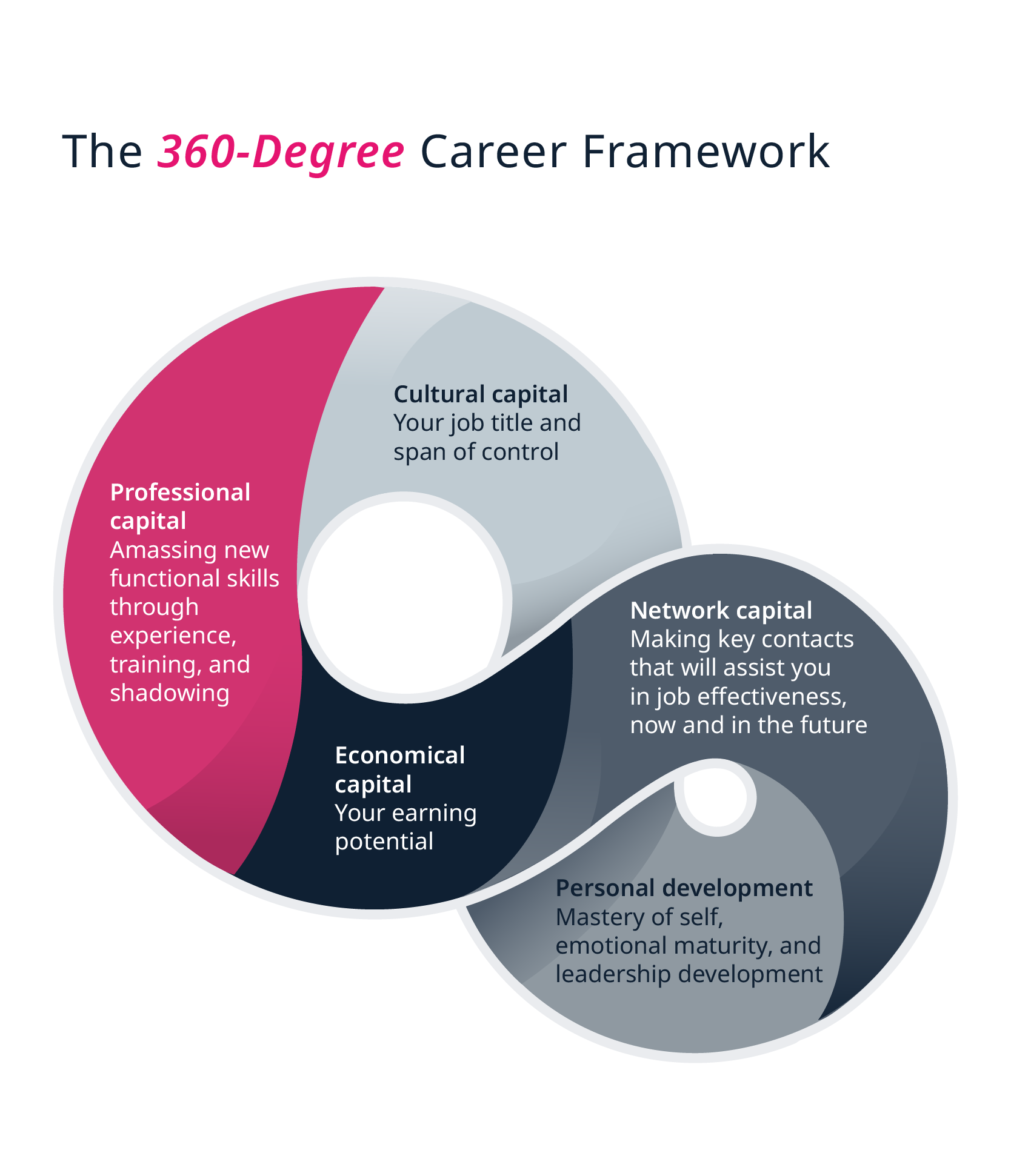
This framework is a future-proof solution to career development that seamlessly integrates cultural capital and economic capital into a professional growth ecosystem, and not just as end goals. Your cultural capital is your job title and what you’re in control of in terms of your career, while your economic capital covers your earning potential. Within this ecosystem, there are three connected growth levers that work seamlessly together to boost your efforts: professional capital, network capital, and personal development. You’ll need all three levers for a fuller, more satisfying career, but your starting point is with personal development.
Personal development is an iterative, context-driven solution
In GetSmarter’s 360-Degree Career Framework, personal development covers three areas: self-mastery, emotional maturity, and leadership development. It’s a map that can help you define a more satisfying future of work in a world where our traditional career paths have changed; we’re no longer set on one path within a company and industry.
GetSmarter’s 2020 The Future of Work Is Here report unpacks findings from over 8,000 respondents in 106 countries. With additional insights gathered from more than 100,000 students over the past 12 years, the report provides in-depth data on how the workplace is changing as attitudes and values shift. Most respondents saw their career path as “fluid and changing frequently”. The insights also revealed that more than half of the surveyed professionals said they might change job function or business area completely to progress.
Within these respondents, 63% of Generation Z and 54% of millennials say they’re either “somewhat likely” or “very likely” to change entire professions in the next 12 months.
The modern career trajectory isn’t necessarily a climb to a destination but rather a continuum. It’s a journey between episodes, with experiences that inform and build atop one another, all creating growth opportunities and new potential for fulfillment.7
Learning now needs to be a continuous process. The number of skills required for a single job increases 6.3% annually, and new skills replace old ones.8
According to the World Economic Forum’s Future of Jobs Report, 50% of all employees will need reskilling by 2025 as adoption of technology increases.9
The perception of upskilling has also changed. Instead of gaining in-depth knowledge in just one area, known as the traditional T-shaped expertise profile, professionals are encouraged to grow their expertise in several areas through additional on-the-job training. This is known as the M-shaped profile; it’s a roadmap that ensures relevance across any industry.10
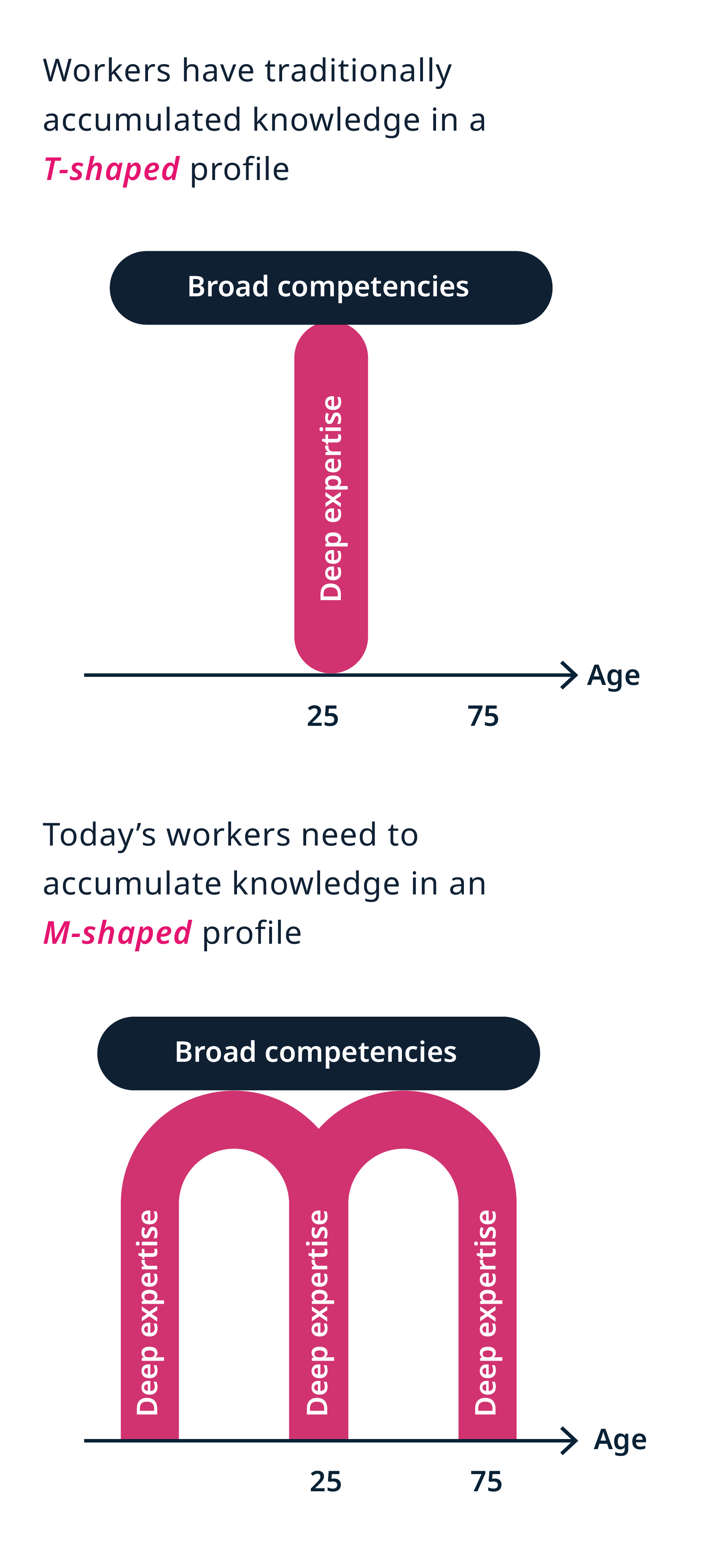
To redefine your purpose and craft a new career, you’ll need to take charge of your development, as our future of work report shows that 43% of respondents feel that it’s the individual’s responsibility to take charge of their continuous learning. Your first focus is self-mastery.
Self-mastery provides guide rails for self-development
In GetSmarter’s 360-Degree Career Framework, personal development starts with self-awareness. You need to understand what your strengths and weaknesses are to unlock your potential and career satisfaction and to become a more effective leader. Self-awareness is the conscious knowledge of one’s character, feelings, motives and desires, and it’s key to self-control, decision-making, creativity, learning, growth, and self-fulfillment.11 It requires a separation from ego and an authentic assessment of our values that drive our best and highest selves.
By becoming more self-aware, you can create value and influence others positively. It’s also a tool to proactively manage your beliefs, thoughts, emotions, decisions, and behavior, which is even more critical in times of higher stress and uncertainty.12 One of the most important things to remember is that self-awareness can be enhanced. It’s a cognitive behavior process that can be worked on through learning and unlearning processes. You can follow three tactics to cultivate self-awareness as part of a reflective approach to building self-mastery:
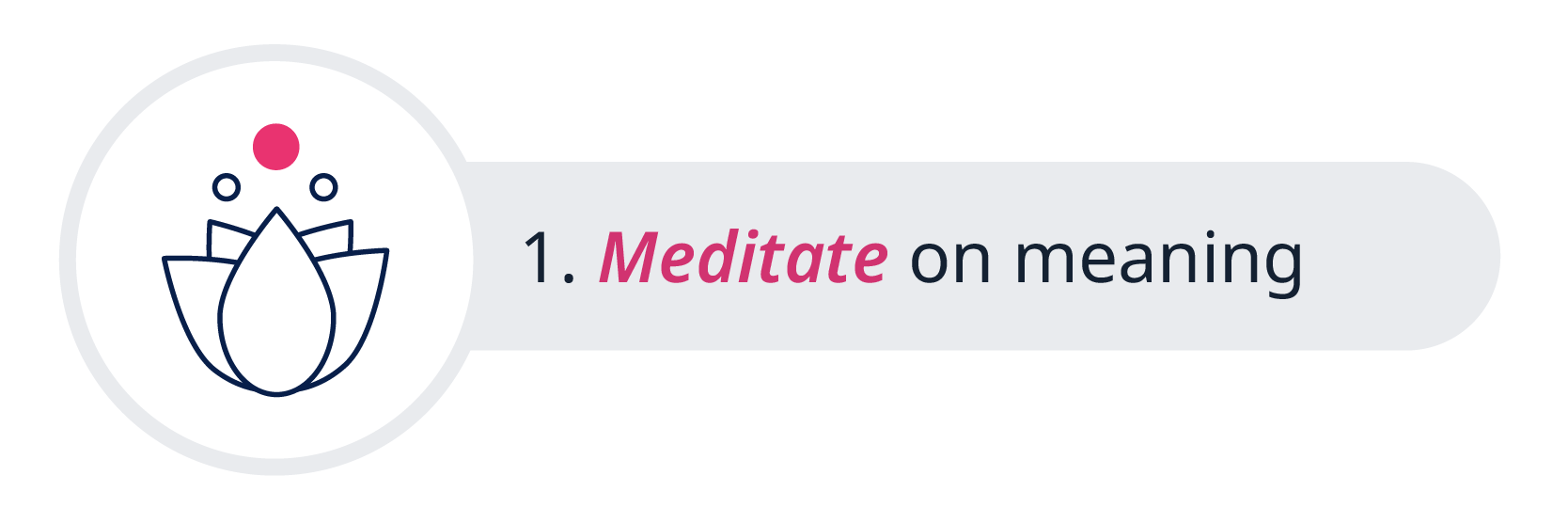
It’s proven that people who connect to meaning each day are happier, have a greater ability to adapt to challenges and use stress as a positive factor amid change.13 It could be taking a few minutes each day to name something you are grateful for, spending time in nature, volunteering, or committing time to creative projects like writing, painting, photography or research. The key: discerning what is meaningful for you and prioritizing that first thing in the morning, even if it’s only five to ten minutes.
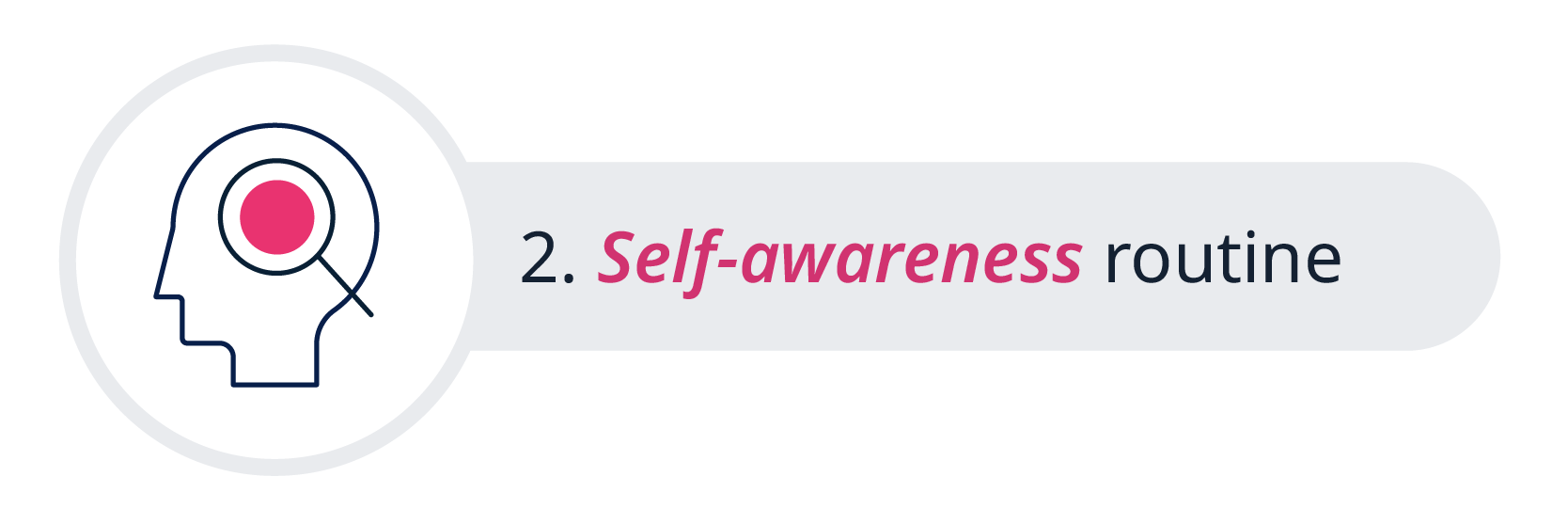
Start asking yourself five self-awareness questions at the end of each workday. These questions can change. Here are a few examples: How do I spend the majority of my daily energy? What was my favorite moment of the day? What do I need to stop doing?14
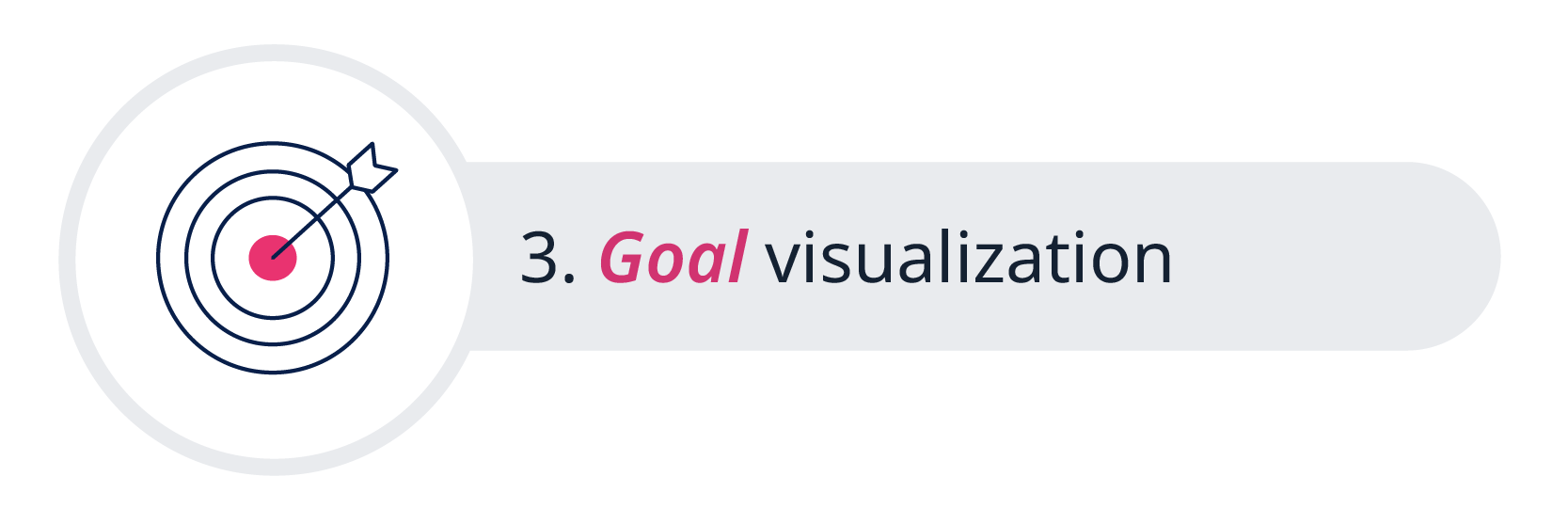
It can be a specific job role, or it can be an ideal work-life balance. Either way, you’ll need to gain a detailed understanding of what you need in skills, responsibilities, and knowledge, and then start planning on achieving what’s required.15 Positivity is aligned to this, as ongoing studies in neuroscience, psychology, and behavioral sciences show a direct relationship between having a positive attitude toward work and experiencing improved health, extended life, and an overall sense of well-being.16
As part of your self-awareness, you’ll uncover specific skill gaps and areas you need to focus on, but our research has highlighted skills that will benefit everyone. The Future of Work Is Here report reveals that the most valued skills for the future won’t be technical, but rather those that can’t be done by machines, such as critical and analytical thinking, leadership, and interpersonal skills.
The demand for social and emotional skills are anticipated to grow across industries by 26% in the United States and 22% in Europe by 2030.
Emotional maturity focuses effort and positive energy
Next, your personal development looks at emotional maturity. This is a prerequisite for handling change more effectively and helps to keep you motivated and aligned to your long-term goals. What it means: it’s the ability to process your own emotions and cope with life situations with agency, responsibility, and flexibility.17 “It’s when you do not rely on others to fulfill your needs physically, emotionally, or spiritually,” says licensed clinical psychologist Dara Bushman. It’s like an internal thermostat that self-regulates, no matter what external stressors you’re experiencing.18
Emotional maturity is not the same as emotional intelligence (EQ): a high EQ requires someone to have the ability to identify emotions in themselves and others and be able to articulate and adapt them as appropriate to a specific situation or interaction.19 Emotional maturity involves a level of self-awareness wherein people are not controlled by their emotions even when they’re triggered.
People who have a high degree of emotional maturity take accountability for their behaviors and refrain from placing blame. They’re able to see other people’s perspectives without reacting, allowing themselves to be vulnerable, set boundaries, not try to fix or change people, and have empathy for themselves and others when mistakes are made.20
In the past, most hiring and training strategies focused on specific knowledge or skills and alignment between people’s competencies and job responsibilities. Businesses today require employees and leaders who are emotionally mature and self-aware, have transferable skills, and can pivot and adapt. This includes having cognitive skills to self-manage reactions to an increasing velocity of unexpected situations and demands.21
Companies that enable their employees to build the emotional maturity and self-awareness required will yield massive gains, not only in the efficacy and well-being of their leaders and their teams but also in the bottom-line business results they produce.22
Personal leadership is crucial for self-development plans
Lastly, your personal development explores leadership. Resilient, adaptive leadership is the key to post-pandemic success, both for personal growth and for businesses’ bottom line.23 This is leadership that’s able to rebound because you’ve learned the foundational cognitive and behavioral skills necessary to being open to innovation, having empathy for the people in your organization, and confidence in your, and your teams’, problem-solving capabilities.24
Personal leadership helps to keep you accountable in your self-development. Companies across all industries require leaders who can communicate persuasively and effectively, meet business objectives, influence stakeholders, and drive positive change.
Disruption accelerates growth and innovation
”There has rarely been as universal an opportunity for reinvention as this moment, and it requires each of us to reject stagnation,” says John Coleman, author of the HBR Guide to Crafting Your Purpose.25 In these times of uncertainty, people are the most valuable asset in any business. To attract and retain the talent that’s needed, companies must ensure that employment and education are fit for purpose in this new world, one where soft skills and continuous learning are essential.
For employees to stand out, now and in the future, it requires a change in mindset to pivot from the traditional linear career model to a holistic and iterative skills plan that emphasizes the ability to think critically, lead teams effectively, and build interpersonal relationships.
To help you redefine your purpose and unlock both meaning and satisfaction in your work-life balance, you’ll need GetSmarter’s 360-Degree Framework to take charge of your own development. The professionals who learn to evolve, adapt, and drive change first are the ones who will lead the future of work.
Your personal development starts here
- 1Rooney, K. (Aug, 2021). ‘5 themes shaping the future of work’. Retrieved from World Economic Forum.
- 2Cook, I. (Sep, 2021). ‘Who Is Driving the Great Resignation?’. Retrieved from Harvard Business Review.
- 3(Aug, 2021). ‘The Greatest Mass Resignation in Modern Times Isn’t Just About COVID or Burnout’. Retrieved from PR Newswire.
- 4Hartman, M. (Oct, 2021). ‘The Great Resignation is leading workers down new career paths’. Retrieved from Marketplace.
- 5Bruce, J. (Jan, 2020). ‘The Future Of Work Is Now: Embrace The Uncertainty’. Retrieved from Forbes.
- 6(Nd). ‘What is Personal Development’. Retrieved from UKCPD.
- 7(Nd). ‘The Next Episode’. Retrieved from The Atlantic.
- 8(Nd). ‘Top 5 HR Trends and Priorities for 2022’. Retrieved from Gartner.
- 9Whiting, K. (Oct, 2020). ‘These are the top 10 job skills of tomorrow – and how long it takes to learn them‘. Retrieved from World Economic Forum.
- 10Brassey, J., et al. (Feb, 2019). ‘Seven essential elements of a lifelong-learning mind-set’. Retrieved from McKinsey.
- 11Harris, L. (Mar, 2020). ‘Self-Awareness Is Key To Leadership Excellence’. Retrieved from Forbes.
- 12Harris, L. (Mar, 2020). ‘Self-Awareness Is Key To Leadership Excellence’. Retrieved from Forbes.
- 13Luther, B. (Mar, 2022). ‘Five Essentials For Well-Being And Personal Mastery’. Retrieved from Forbes.
- 14Harris, L. (Mar, 2020). ‘Self-Awareness Is Key To Leadership Excellence’. Retrieved from Forbes.
- 15Higgins, L. (Apr, 2020). ‘Mastery Mindset And Your Career’. Retrieved from Forbes.
- 16Luther, B. (Mar, 2022). ‘Five Essentials For Well-Being And Personal Mastery’. Retrieved from Forbes.
- 17Estrada, J. (Oct, 2019). 9 Steps for Raising Your Emotional Maturity Level and Taking Stress in Stride’. Retrieved from Well+Good.
- 18Estrada, J. (Oct, 2019). 9 Steps for Raising Your Emotional Maturity Level and Taking Stress in Stride’. Retrieved from Well+Good.
- 19Blum, A. (Mar, 2019). ‘Building A High-Performance Culture: Why Emotional Maturity Is Key‘. Retrieved from Forbes.
- 20Estrada, J. (Oct, 2019). 9 Steps for Raising Your Emotional Maturity Level and Taking Stress in Stride’. Retrieved from Well+Good.
- 21Bruce, J. (Jan, 2020). ‘The Future Of Work Is Now: Embrace The Uncertainty’. Retrieved from Forbes.
- 22Blum, A. (Mar, 2019). ‘Building A High-Performance Culture: Why Emotional Maturity Is Key‘. Retrieved from Forbes.
- 23Ali, I. (Apr, 2021). ‘Adaptive Managers as Emerging Leaders During the COVID-19 Crisis’. Retrieved from Frontiers In Psychology.
- 24Bruce, J. (Jan, 2020). ‘The Future Of Work Is Now: Embrace The Uncertainty’. Retrieved from Forbes.
- 25Coleman, J. (Mar, 2022). ‘Redefining Your Purpose in the Wake of the Pandemic’. Retrieved from Harvard Business Review.
